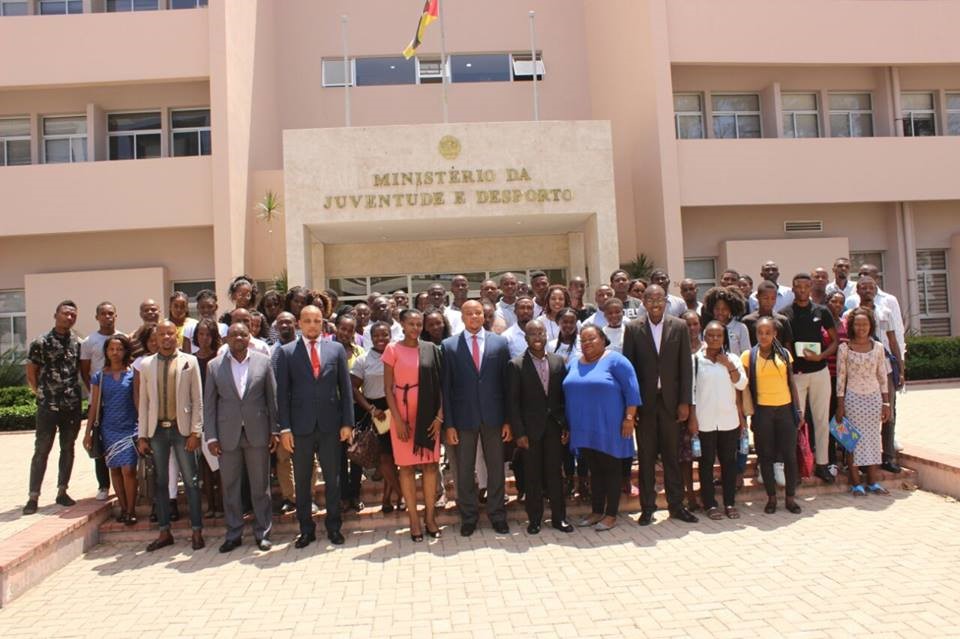Context: The Mozambique National Statistical Institute (2014) estimated that more than 45% of the Mozambican population of about 27 million is under 15 years while 33% are in the youth category of 15-35 years. The country’s universities and other tertiary education institutions churn out about 50,000 graduates annually, majority of whom lack employability skills. Furthermore, the majority of graduates reside in the cities, leaving most of the 133 districts in Mozambique with acute shortages in human resources.
Implementation of programme/initiative: O PROJECTO “FÉRIAS DESENVOLVENDO O DISTRITO”, which translates to “HOLIDAYS DEVELOPING THE DISTRICT” is an initiative that aims to provide far flung districts of Mozambique with opportunities to obtain qualified professionals to meet their human resource needs through graduate internship programmes. The programme seeks to smoothen school-to-work transitions and reduce unemployment by promoting opportunities for internships in public and private institutions, enhancing acquisition of practical work skills and facilitating the young graduates to rediscover their potentials and opportunities in the districts. It is implemented by the Association of Finalist and University Students of Mozambique (AEFUM) with support from the government and private sector. The first edition of the programme started in 2008 with a small number of students from 3 participating universities. The project now covers 38 universities spread throughout Mozambique. The programme is financed by the beneficiary students (30%), participating universities and tertiary institutions (50%) and AEFUM (20%).
Main challenges: The programme has a number of challenges. Key among these is that it relies on the availability of universities and higher education institutions and the students as its catchment. The intake, therefore, depends very much on the individual importance placed on internships in the curricula of the institutions and their semester schedules. The programme also requires a huge budget to support the logistical requirements for students in the cities and urban centres to relocate and reside in the districts for the period of the internship. The programme also relies heavily on the state to identify the needs at the local level and provide internship opportunities. It is also the state that provides the structural support of the initiative.
Results achieved: The programme impacts more than 5,000 students in various specialties annually. It has so far benefitted 35,000 students from 38 universities. In total, students have been paired with 1,020 different public and private sector institutions. Up to 43% of the beneficiaries are women from low income families. About 1,600 young people (51% female) who benefitted from the programme have been effectively integrated into regular employment, while others have benefited from jobs with short-term contracts of service. Those who were not absorbed in regular employment expressed satisfaction for having acquired practical work experience. Furthermore, the beneficiaries of the programme were found to be twice as knowledgeable about laws, norms and regulations and other common instruments in the labour market compared to non-programme beneficiaries. They also have three times higher ability to identify opportunities for regular, self-employment, or create new job opportunities or markets than their counterparts who did not participate in the programme.
Moving Forward: The goal of the program going forward is to generate enough competent, committed, and visionary leaders in order to best navigate the anticipated complexities of international growth.
Replicability: The programme is simple to replicate. In Mozambique, it started in one province with three universities and is now being implemented in all parts of the country with 38 universities participating. There are indications that Zimbabwe, Swaziland, Angola and Democratic Republic of Congo are intent on implementing a similar programme.
| References | https://www.facebook.com/Aefum-INFO-1507894186200571/
AEFUM 2016 activities report |
Project Details
Date: November 20, 2017
